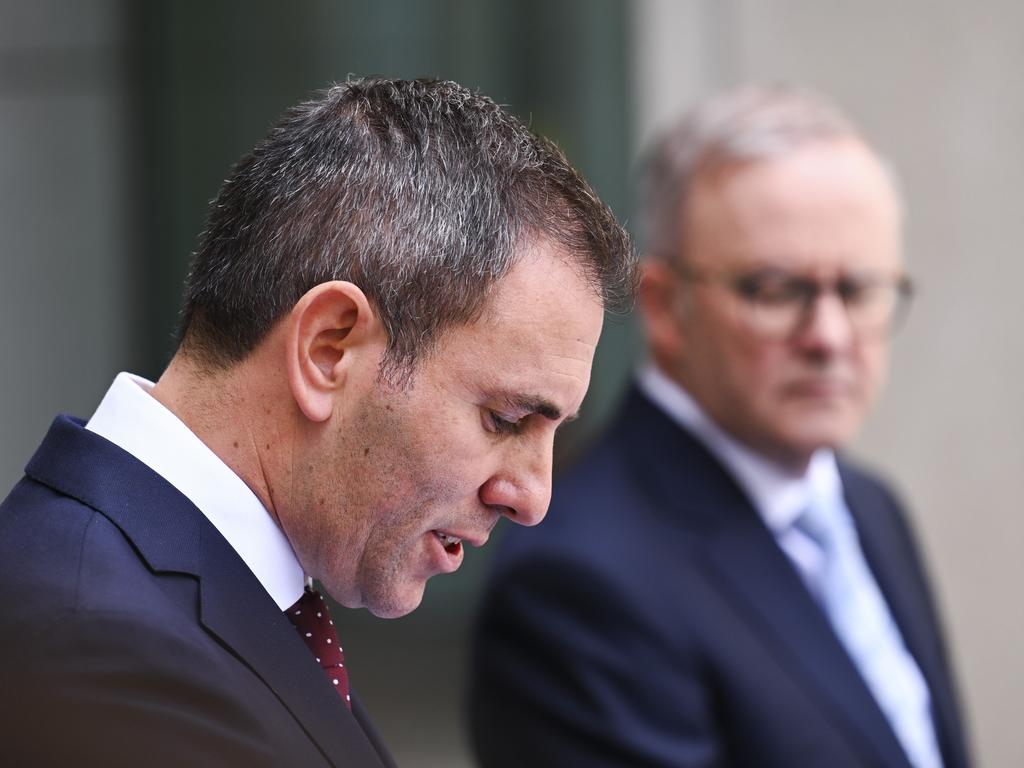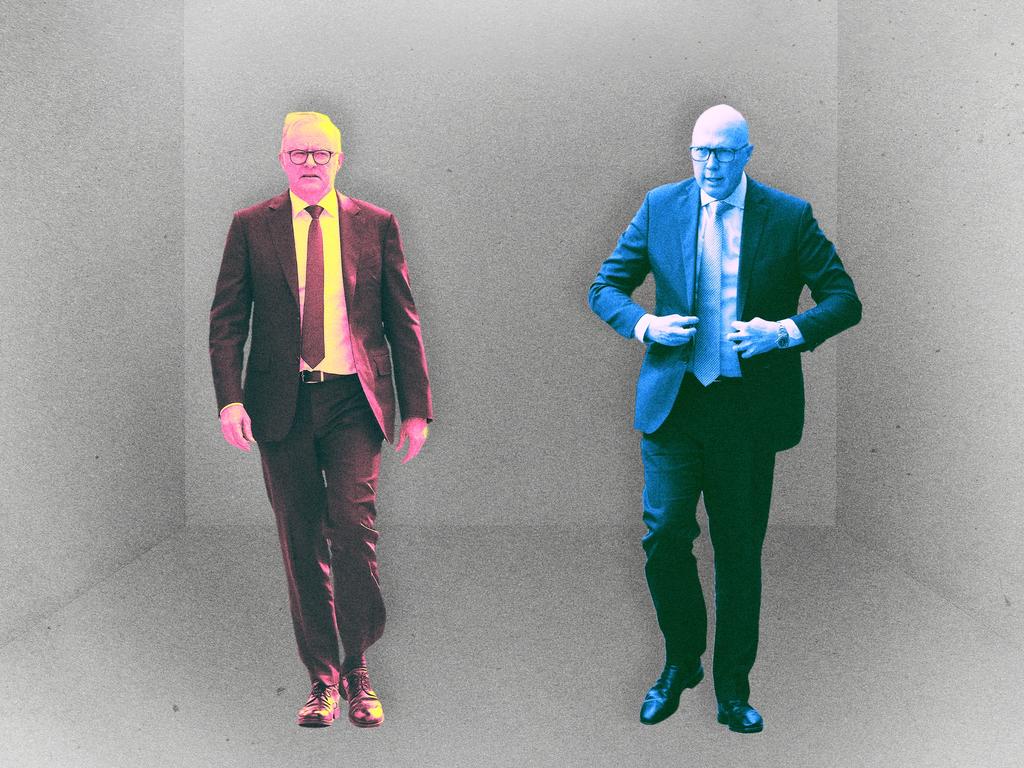Labor’s superannuation tax grab not the solution to nation’s budget repair
A clumsy super slug doesn’t cut it as real tax reform, but the nation needs to ease the fiscal burden on young Australians.
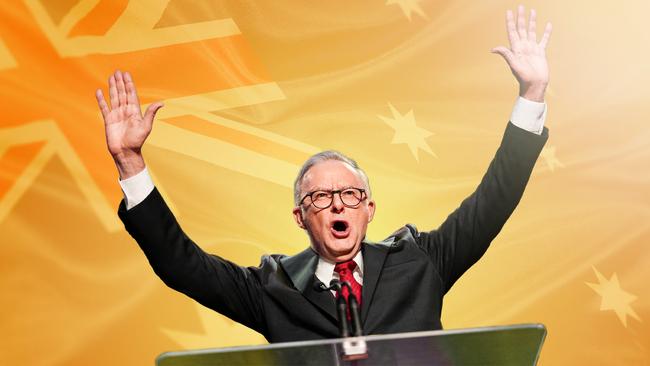
How will Anthony Albanese use his super-majority in the 48th parliament? Many want the Prime Minister to discard the mode of his first term by abandoning the spending sprees that have spawned a defective fiscal default; ditching handouts to failing industries and ill-judged bailouts; limiting intervention in the workplace and energy markets.
Some even hope Labor will be emboldened to enact reforms that risk censure from vested interests but have strong support in the electorate. In policy land, that means fixing the budget, moving faster to lift productivity and housing supply, and repairing a tax system that, across time, will damage what a top Canberra public servant described this week in a speech as our “social compact”.
That policy wish list demands a refreshed leader, one we’ve rarely glimpsed across a career that has entailed nine years in government and 20 in opposition. Australians have slowly got to know Albo, a graduate of Labor’s back room. In 2022, he was a small-target alternative PM; while he stumbled on policy details under lights, voters saw a safe alternative to Scott Morrison.
Then, the next year, Albanese became a risk-taking frontrunner on the Indigenous voice to parliament. He lost his political mojo for a time, then pre-poll found the national credit card and his go-to prop of a Medicare card. In the recent campaign, polling suggests the Prime Minister was a strong factor in Labor’s resurgence. Now he has the wind at his back at the start of a second term.
But not so fast. While Labor’s primary vote improved by a couple of clicks, it was still a bloodless 34.6 per cent. In 1993, Paul Keating won 44.9 per cent of first preferences. Scribes called him the “Sun King”, long would he reign; three years later, aged 52, he was made redundant.
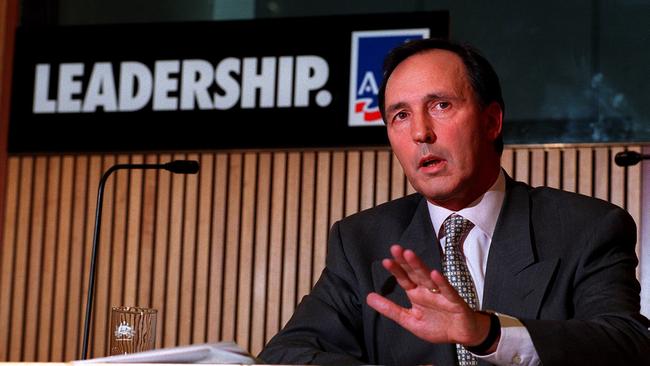
Still, in the afterglow of May 3, with 94 seats in the 150-member lower house, conventional wisdom is that Labor has a lock on a third term and an immense store of shiny political capital to burn.
A post-election survey of voters by JWS Research shows strong support for broadbased reform of the tax system (56 per cent versus 7 per cent opposed). As well, the survey found even stronger support for the proposition “the Albanese government should use the next parliamentary term to tackle some of the more difficult and complex reforms needed to grow the economy and balance the federal budget” (81 per cent agreed, 4 per cent disagreed).
According to JWS Research’s founder John Scales, this data should encourage the re-elected government to “give the public more of what they need rather than just what they want”, such as fiscal reform and greater economic responsibility than in the major parties’ campaign promises.
At the National Press Club last week, ALP national secretary Paul Erickson was asked about the likelihood of a more ambitious reform agenda.
As Sarah Ison reported, Erickson cautioned the government against unveiling any new policies. Instead, it should “stay focused” on what it campaigned on, such as cutting HECS debts, more urgent care clinics and boosting the bulk-billing rate.
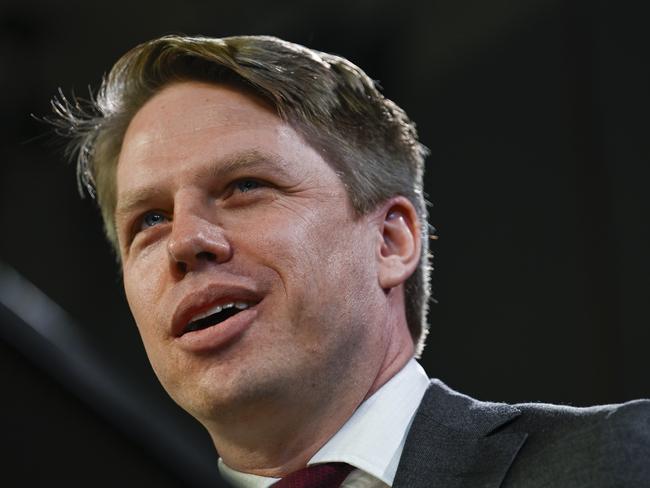
If the key policy people want is to repair the budget or raise productivity growth, the campaign mastermind said, “you have to bring people with you”.
“You have to make the case for why it’s important, for what the benefits will be,” Erickson said. “And that’s something that has been a hallmark of the government over the three years and I’m confident of our ability to continue meeting the challenges that are thrown at the country.”
That wasn’t a feature of Labor’s policy playbook in late February 2023. It has been 27 months since Jim Chalmers announced out of blue what he claimed was a “modest change” to make the nation’s “world-class superannuation system more sustainable and fairer”.
The Treasurer said from July 1 this year the concessional tax rate applied to future earnings for balances above $3m would rise from 15 per cent to 30 per cent.
Wealthy Australians and their financial handlers demanded a retreat. Budget realists and policy purists outside the arena greeted the move with a shrug; it was a naked grab for $2bn a year in revenue, stiffing a constituency that does not vote for Labor; it was nothing like a reform that would enhance fairness, efficiency or simplicity in the tax system.
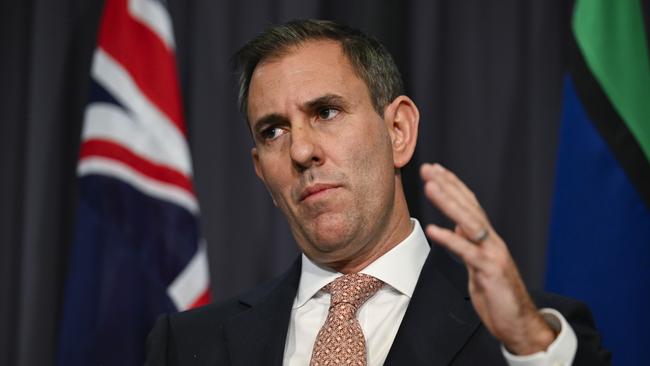
For what seemed like a political nanosecond, Labor’s surprise move was a rallying point for the Coalition. Peter Dutton said he would restore the tax break. “We’re not going to stand by and watch Australians attacked,” the former opposition leader said at the time. The proposed measure is yet to become law, having failed to win support in the Senate.
Yet for the estimated 80,000 people affected by the proposed tax slug, the siege of Superannistan continues. Late in the campaign, critics began pulling the policy apart. Some, though not all, of the claims from the valley of doom have been self-serving, outrageous, desperate, vindictive and incendiary. Welcome to public policy, which Productivity Commission chairwoman Danielle Wood once described as a “contact sport”.
There are legitimate questions about the policy design, namely that the $3m threshold will not be indexed (although given what happens in other parts of the system, a future government could raise it out of the goodness of its own heart). As inflation works its way through the savings system, more people are likely to be hit (some experts believe the behavioural response will see people accumulating wealth and minimise their tax bills in other ways).
As well, there’s the taxing of unrealised capital gains. It’s an administrative miasma but probably not insurmountable given the way funds manage it now. Self-managed superannuation funds are required to value their assets each year, maintain a diverse portfolio and sufficient liquidity to meet obligations. Still, people have arranged their affairs legally and in good faith, not only to reduce tax liabilities but to make it easier to pass on assets, such as family farms, to children.
Labor only will need the support of the Greens in the Senate. New leader Larissa Waters told Ison this week she did not have a problem with the concept of taxing unrealised capital gains but thought the threshold should be lowered to $2m to raise more revenue. Even if a rejuvenated government has the numbers, this is not the way to achieve good policy outcomes or an optimal use of a super-majority. There’s deploying political capital and then there’s the brutality of Labor’s Origin-like blindside hit with a bonus “don’t argue” on tax.
This week Treasury secretary Steven Kennedy ventured into the wild with a belated post-budget address about policymaking in an era of persistently high levels of uncertainty, unlike anything experienced in decades. His speech is akin to a highly redacted version of the department’s incoming government brief to Chalmers.
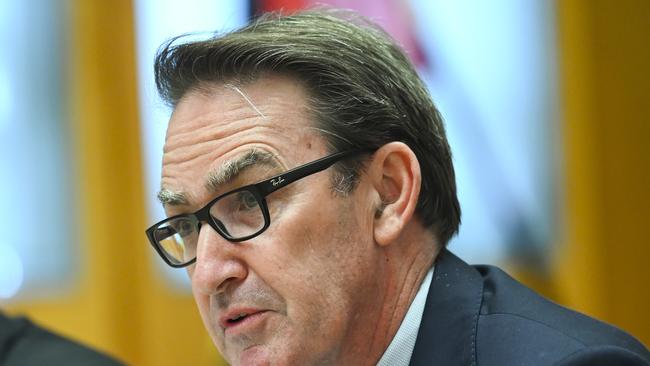
Kennedy told his audience of business economists this tricky period demands evidence-driven approaches, extra insurance against global risk and stronger military deterrence. The investment in defence, however, needs to continue to adapt to Australia’s economic structure, with our strength and resilience based on resources, agriculture and services. “Unnecessarily diverting resources away from them to sectors where our comparative advantage is weak would only degrade our resilience and productivity,” Kennedy said. “Especially in an economy near full employment.”
The Treasury secretary talked up the value of more competition in the economy, paying the provinces to speed up progress to a single national market, opportunities for better road funding and user charging, the safeguard mechanism to reduce emissions, reform of environmental approvals, workforce mobility, and the introduction of price signals and user pays in aged care. There’s also a lot in Labor’s in-tray to assess, so the “quality of decision making” will be crucial to driving productivity.
Kennedy said next year spending on the National Disability Insurance Scheme would surpass defence commitments. “In a world of increased uncertainty, we want a budget that maintains flexibility to implement policy responses to mitigate the effects on our people of possible negative outcomes,” Kennedy said.
With a decade of deficits ahead of us, insurance against global risks will “require careful prioritisation, and maybe reprioritisation, of areas of expenditure that are growing”. Kennedy didn’t list them but you would think he means aged care, health, disability services and defence. As well as debt interest and, given what is (and has been) in the government sights because of their enormous cost, tax breaks on trusts, capital gains, property investment and superannuation.
Kennedy also drew on a blistering critique of Bidenomics by former Obama administration top economic adviser Jason Furman. The US Democrats lost their bearings by discarding the orthodoxies of budget constraints, trade-offs and cost-benefit analysis, succumbing to what the Harvard professor in an essay in Foreign Affairs this year called a “post-neoliberal delusion”.
Here the trusted growth model of free trade, balanced budgets, productivity-led income accumulation and strong markets that served Australia for four decades is under siege – from without and within. We stray from them, and orderly processes, at our peril.
During the question and answer session, Kennedy dismissed criticism that the superannuation changes did not amount to real reform. “All tax reform is hard, all tax changes are difficult,” he said.
The federal custodian is a fluent salesman, yet he has done very little retail work on tax; perhaps the political calculus shows the tax grab, despite its clumsiness and the noise of late, won’t hurt the government, so why talk about it? Plus, despite the apparent voter hunger for tax reform, “big bang” is not on the cards.
But why not? Timidity, rigidity, lack of courage, cluelessness about how to get people in the reform cart? The tax system is failing and is losing voter support. Levelling with the public about the intergenerational unfairness of our arrangements, as manifested in the rising tax burden on younger workers, the rigged welfare system and housing unaffordability, is a prelude to reform.
Then there’s the scandal of wildly different rates of tax paid by people on similar incomes (because of trusts and the like) and the inefficiencies from distortions in concessions (or penalties) for different types of saving and investment. Something has got to give because the current settings are as implacable as they are cruel for too many taxpayers.
With Labor’s big majority and the world closing in, there’s a mountain of reform to sustain our society, security and services. Yet this thumping win brings a chilling echo from the Indigenous voice campaign for a reform-shy Labor: “If not now, when?”


